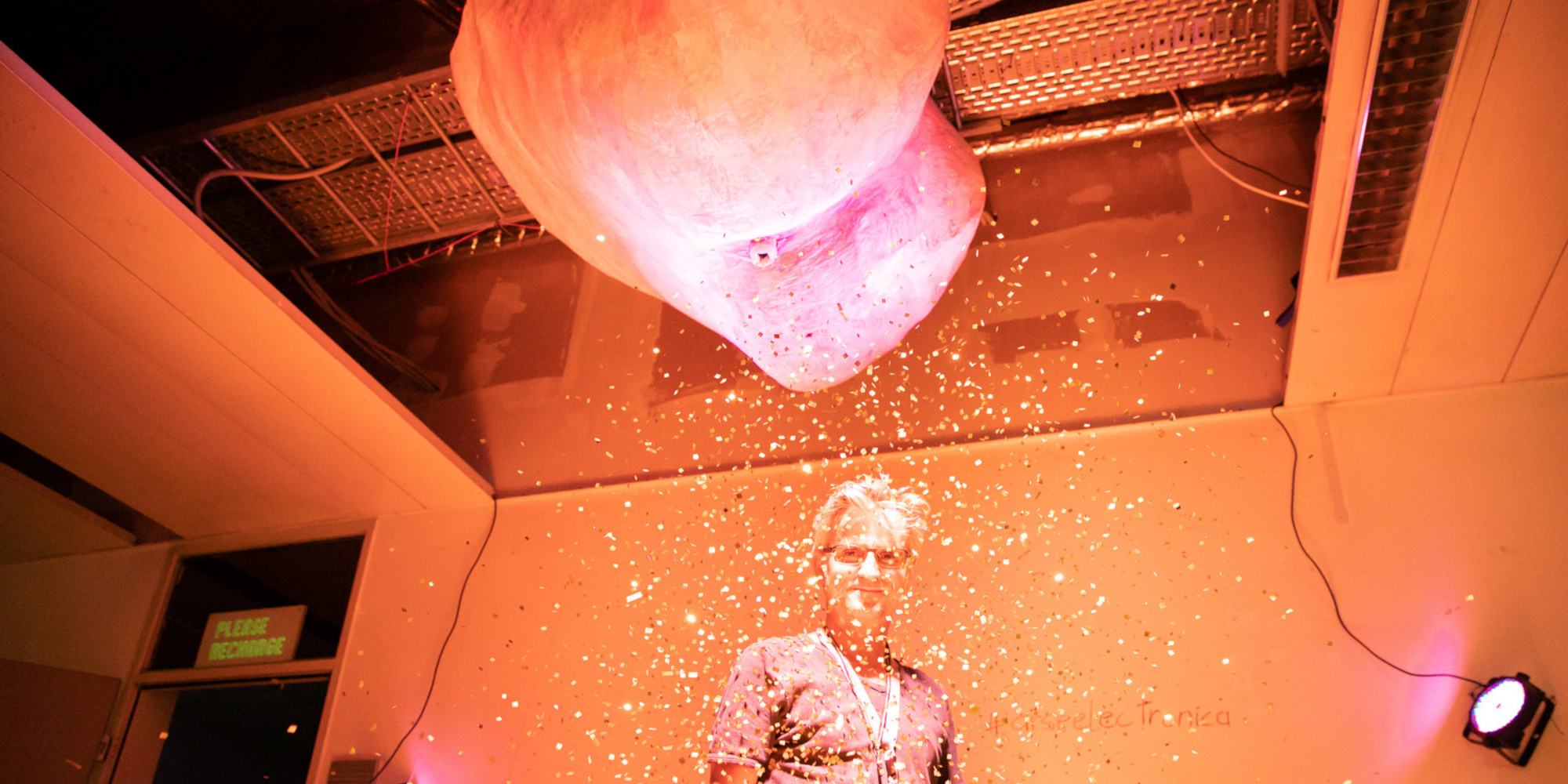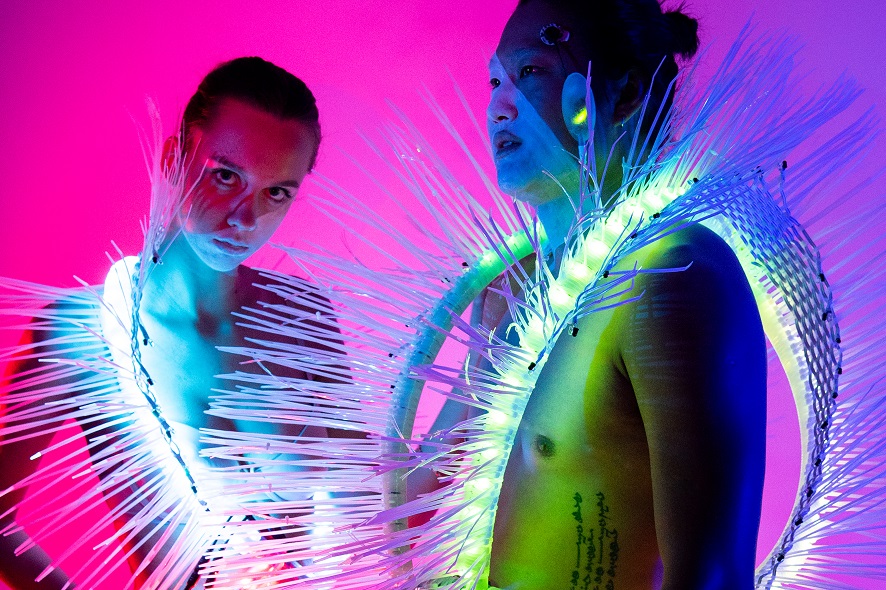Twenty-four universities from all over the world will be using the 2018 Ars Electronica Festival to showcase the results of their educational programs at the interface of art and technology, first and foremost, the International Research Network Hexagram, an interdisciplinary research network for media arts, design, technology and digital culture based in Montreal (Quebec), Canada. Under the direction of curator Anna Kerekes, University of Quebec in Montreal, and project initiator Chris Salter, co-director of Hexagram, Concordia University, they have put together an exhibition on ”Taking Care.” Universities from Australia, Asia, the USA and Europe are also prominently represented in the campus program. The Linz University of Art also plays a decisive role with its Interface Cultures course, which has promoted and developed the Campus Program for many years.
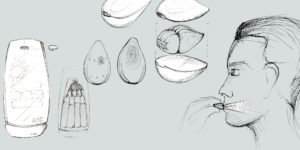
Campus Exhibition: Design Fiction
New Design University St. Pölten, Graphic- and Informationdesign
Students are examining possible scenarios for developing interfaces in a near future.
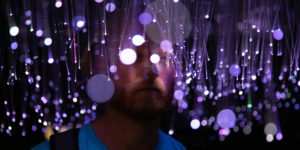
Campus Exhibition: Disruptive Generation
Art & Technology Studies at School of the Art Institute of Chicago (SAIC)
Curator: Duncan Bass (US)
The works assembled in Disruptive Generation question the role of technology in constructing and mediating our experience of reality.
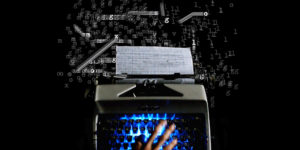
Campus Exhibition: Explorations of Interactions
Media and Arts Technology Centre, Queen Mary University of London
Explorations of Interactions showcases research in media and arts technology driven by three error-prone calls to action: Interact. Reflect. Create.
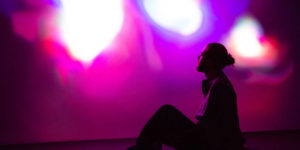
Campus Exhibition: Taking Care
Hexagram (CA)
Taking Care is an exhibition of twenty works from student members of Hexagram, an interdisciplinary research network for media arts, design, technology and digital culture based in Montreal (Quebec), Canada.
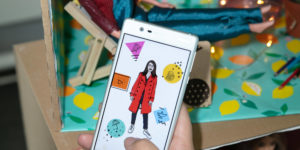
Campus Exhibition: Please Recharge
University of Art and Design, Linz, Interface Cultures (AT)
We live in times of information overload and permanent availability. The convenience of being connected anywhere and anytime is ultimately not compatible with the physical and mental capacity of our bodies. They do need breaks and we do need time.
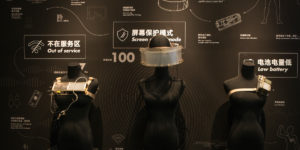
Campus Exhibition: Kairos
CAFA Central Academy of Fine Arts Beijing (CN)
This exhibition aims to put on display the current state of art, science and technology (AST) education at the institution.
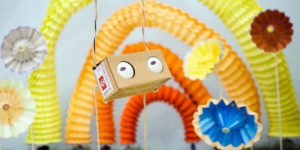
Campus Exhibition: LIVING LAB
Bartlett School of Architecture, Interactive Architecture Lab (GB)
Das Interactive Architecture Lab an der Bartlett School of Architecture beschäftigt sich mit dem Verhalten und der Interaktion von Dingen, Umgebungen und ihren BewohnerInnen.
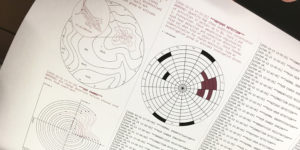
Campus Exhibition: Log. Files. Stories from the Internet of Things
University of Art and Design, Linz, Visual Communication
In a two-week workshop, students considered everyday future situations in which networked devices take action, depending on different scenarios about data control and ownership.
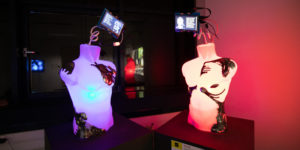
Campus Exhibition: Melodies from Teochew Strings
Cheung Kong School of Art and Design, Shantou University (CN)
The melodies and the Teochew string instrument as the metaphors for the fresh ideas and novel aesthetic concepts derived from the mix of native Chinese heritage and technology.
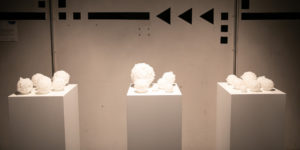
Campus Exhibition: !OBJECT
Roy Ascott Technoetic Arts Studio, De Tao Masters Academy, Shanghai Institute of Visual Arts (SIVA)
!OBJECT, pronounced NOT OBJECT, is a series of ‘technoetic’ compositions. These ‘non-object’ artworks exist as material carriers of immateriality and are the creations of our very first graduate students in technoetic arts.
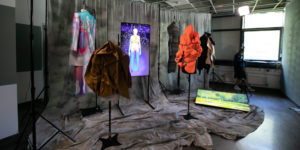
Campus Exhibition: Academy of Arts, Architecture & Design Prague
Humans are imperfect, but making mistakes also creates new levels of creativity and improvisation. The multimedia installation defines fashion as an interdisciplinary platform and presents the result of a two-semester experimental project that investigates the AI phenomenon from the perspective of millennials, a native digital generation naturally driven by responsibility and sustainability.
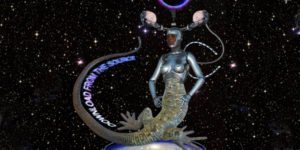
Campus Exhibition: Sex in the Digital Age
King’s College London – Digital Humanities Department
What new channels of sexual communication have been opened up by the fiber optic cables that snake between our continents?
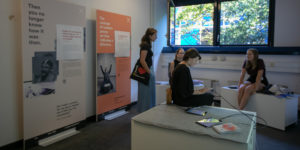
Campus Exhibition: splace magazine
Tina Frank (AT), Marianne Pührerfellner (AT), Sabine Kienzer (AT)
With splace magazine, the Kunstuniversität Linz presents a digital multi-format publication for interactive art encounters in space, word and image.
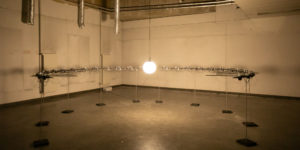
Campus Exhibition: Tribes and Machines
MA Interaction Design Communication, London College of Communication, University of the Arts London
Tribes and Machines is an exhibition of collected work from MA Interaction Design Communication at the London College of Communication. The students exhibiting their work have been conducting projects researching niche communities.
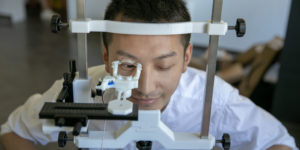
Campus Exhibition: University of Tsukuba
This program at the University of Tsukuba aims to realize the students’ career development.
Every year since 2002, Ars Electronica and the University of Art and Design Linz have hosted an exhibition by artists associated with an international higher-education institution whose curriculum takes an innovative approach to teaching media art and media culture.
Initiated by Prof. Reinhard Kannonier (University of Art and Design Linz) and Gerfried Stocker (Ars Electronica), the intention of the Campus format is to invite outstanding international universities working in the academic fields of media arts and design. Projects highlighted here represent the nature of the mission and activities of invited guest universities from all around the world. These showcases became an essential part of the festival and an instrument to analyze and visualize different models of educational approaches in artistic and creative areas. It has also increasingly developed into a stage for contextualized works from alumni, professors or associates from the universities to map the identity of academic institutions, their history and current practice.
Part of Campus’s mission is to enable the presentation of young, local media artists and their work with international exposure. The Interface Cultures program of the University of Art and Design Linz annually presents a cross-section from their masterclass works and, together with Ars Electronica, co-hosts one main featured partner university each year. The festival is increasingly becoming a platform for artistic and creative collaborations between Ars Electronica and various regional, academic partners, for example the Fashion & Technology or the Visual Communication program at the University of Art and Design Linz, the Anton Bruckner Private University Upper Austria or the University of Applied Science Upper Austria, Campus Hagenberg..
